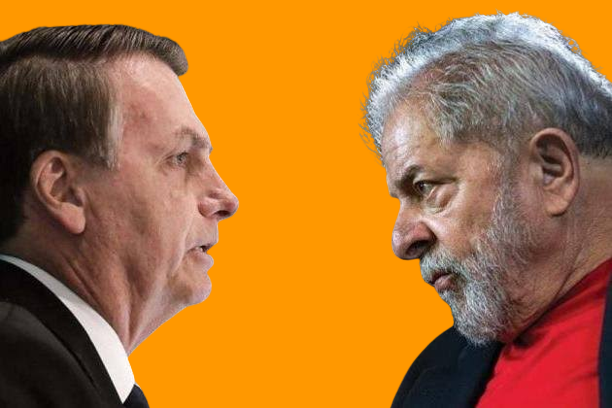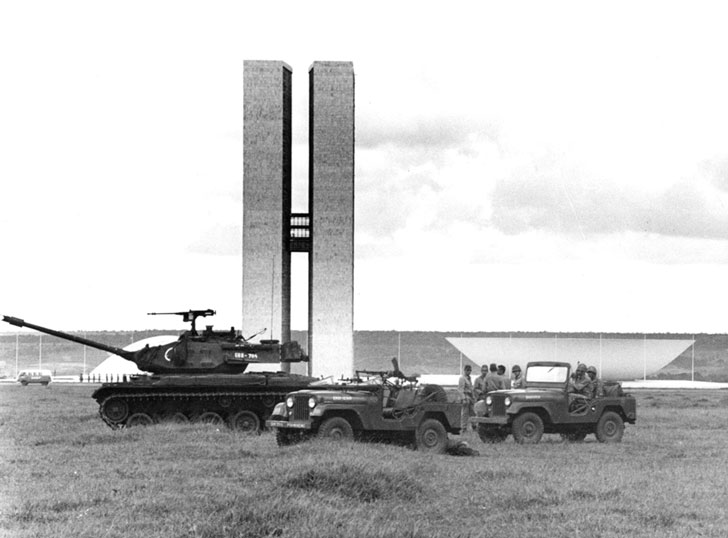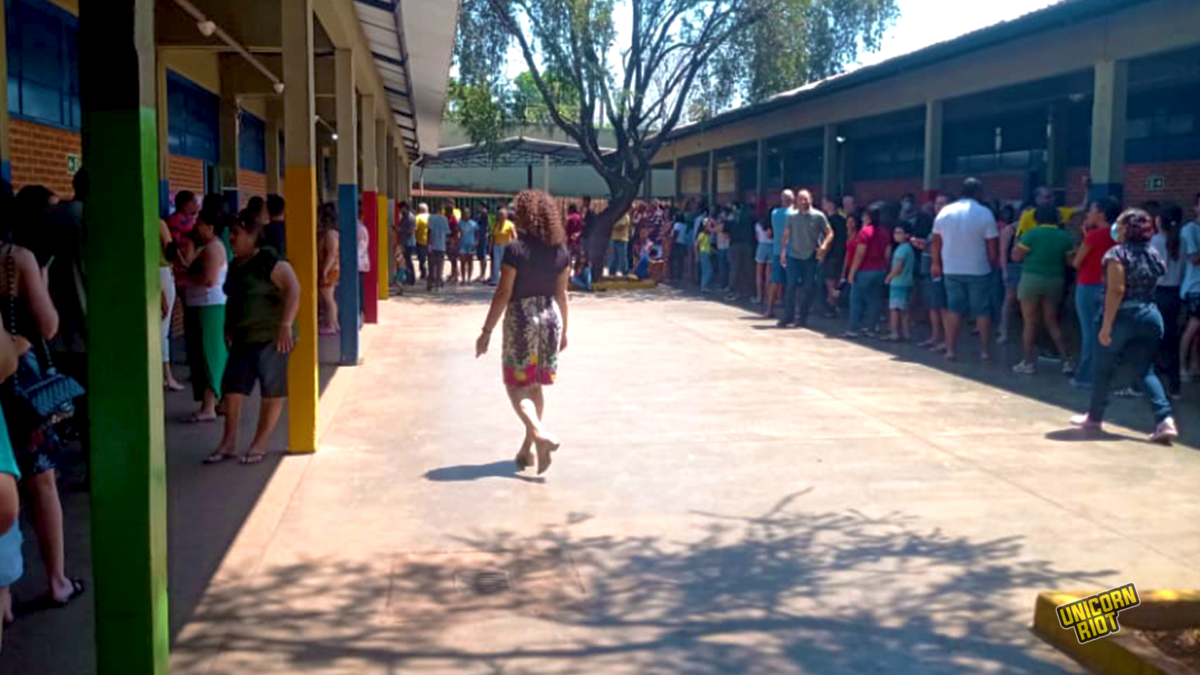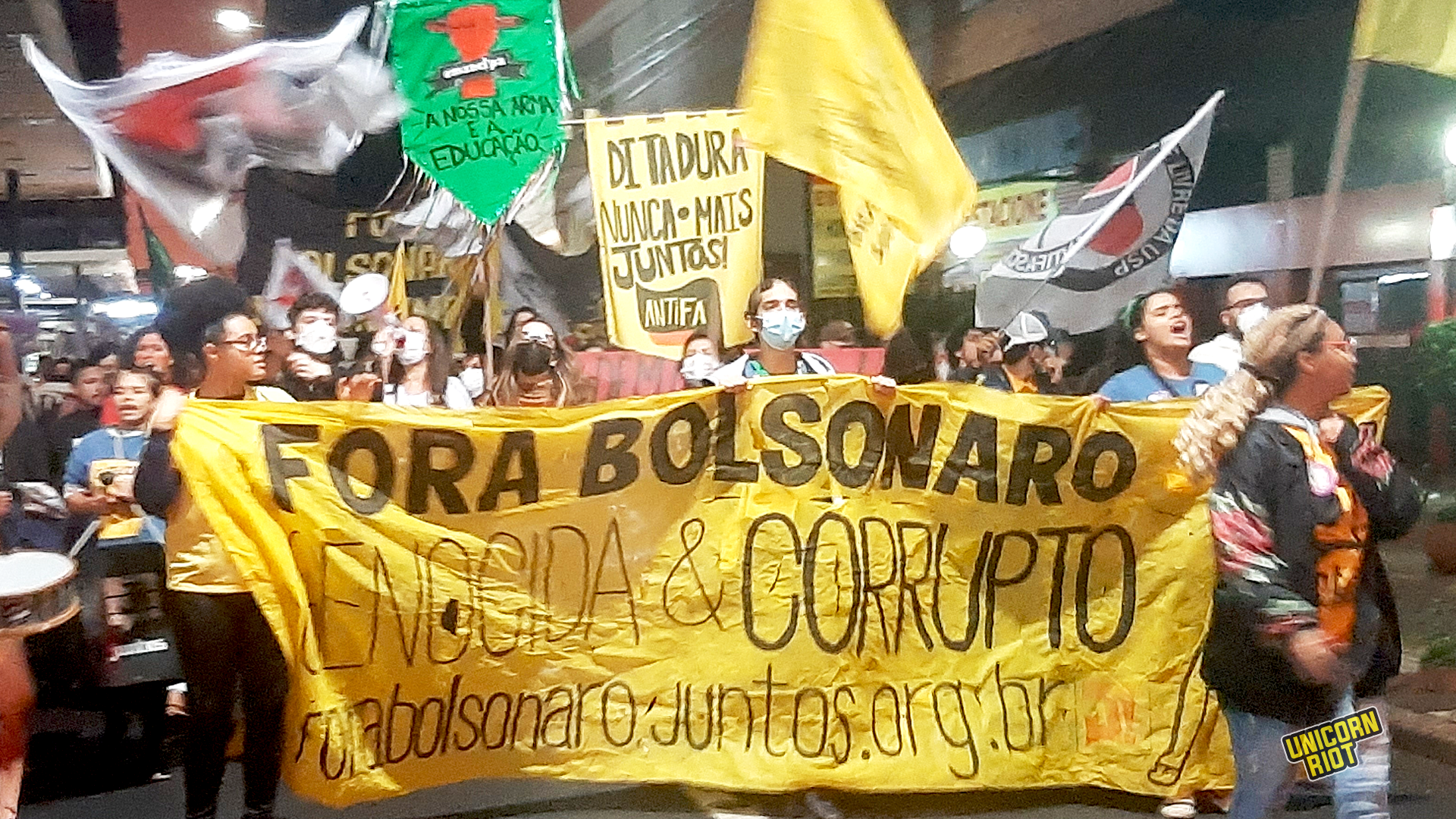Elections in Brazil: Second Round Slated for October 30 Between Lula and Bolsonaro
The dissatisfaction of Brazilians across the country was reinforced as the populace voted against the current President Jair Messias Bolsonaro (PL – Liberal Party) last week. However, the results were so close between Bolsonaro and Luiz Inácio Lula da Silva (PT – Workers’ Party) that the presidential candidates must wait until the second round of voting, on October 30, to find out the winner. Notably, turnout reached its lowest level since 1998.
Bolsonaro finished the first stage with just over 43% of the votes. His opponent, former leftist President Lula da Silva, obtained little more than 48% of the votes, thus falling two percent short of an outright victory in the first round.
May 2022: ‘Bolsonaro Never Again’ Protests Come Among Wave of Government Scandals
Breaking Down the Votes
In the first round of voting on October 2, 2022, former President Lula won in the Brazilian states of Alagoas, Amapá, Amazonas, Bahia, Ceará, Maranhão, Minas Gerais, Paraíba, Pará, Pernambuco, Piauí, Rio Grande do Norte, Sergipe and Tocantins. Bolsonaro won in Acre, Distrito Federal, Espírito Santo, Goiás, Mato Grosso, Mato Grosso do Sul, Paraná, Rio Grande do Sul, Rondônia, Roraima, Santa Catarina, and São Paulo. Lula also carried Rio de Janeiro, a stronghold of militias tied to Bolsonaro and polling place of the current president.
When it comes to voting abroad, Brazilians residing outside the country in these elections were able to choose who they would like to see as Brazil’s Chief Executive. The counting of votes abroad brought victory to former president Lula with 47% of the votes, against 41% for the current far-right government.
Lula won the majority of votes cast by Brazilians living in countries such as Saudi Arabia, Australia, Belgium, China, South Korea, Denmark, Netherlands, Hungary, Jordan, Lebanon, Malaysia, New Zealand, Norway, Palestine, Poland, Kenya, Czech Republic, Sweden and Thailand. Meanwhile, Bolsonaro won most of the ballots cast by Brazilians who currently reside in the United Arab Emirates, Greece, Indonesia, Mozambique and the Dominican Republic.

The Next Two Candidates
During the electoral campaign, pressure was put on presidential candidate Ciro Gomes (Democratic Labor Party) to give up his campaign and support Lula. Despite the various campaigns and demonstrations carried out by artists, politicians, journalists, and political scientists, among others, Gomes was not swayed and he stayed in the race.
At the end of the first round, Gomes was in fourth place with just over 3% of the votes, behind Simone Tebet (Brazilian Democratic Movement), who won just over 4% of the electorate. Gomes defends ideas similar to those of former president Lula, while candidate Simone Tebet is an advocate for women’s rights.
Fake News
Not even the mechanisms created by the Superior Electoral Court (TSE) to prevent the spread of fake news managed to stop Bolsonarist groups from making use of the practice. Distorted information, some generated by Israeli company CySource, was constantly circulated in Brazil and in places outside the country where there were polling locations.
One case that drew a lot of attention was that of a fake news campaign which spread social media the day before the vote, falsely claiming that candidate Lula was tied to a Brazilian criminal organization.
The minister and president of the TSE (Superior Electoral Court) Alexandre de Moraes, as soon as he became aware of the news, determined the immediate removal of the false content under penalty of R$100,000 for non-compliance with the order.
However, it is understood that the last minute post was strategic and the story circulated for a long time, allowing access to the most unsuspecting and thus likely changing the outcome of the election.
Electoral Violence
These elections have been tense because they put the extreme right, represented by Bolsonaro, and the left, represented by Lula, face to face. However, unlike the 2018 elections in which Bolsonaro emerged victorious, the situation now includes a strong will for change on the part of poverty-stricken Brazilians who’ve lived through one of the most deadliest countries during the pandemic, suffering due to the coronavirus, gun violence, police brutality and femicide.
Another point that weighs in favor of Lula, the PT candidate, is that in no candidate has ever managed to reverse the voting results in a runoff election.
In light of this, the tendency is for new cases of psychological intimidation, physical violence and even murders to occur in the country. One week before the vote, a Bolsonarista stabbed a Lula voter to death after entering the bar and asking who would vote for the candidate of PT.
This followed one of the most infamous cases of recent political violence, when municipal guard Marcelo Arruda was murdered by criminal police officer Jorge Guaranho on July 9, the night he celebrated his 50th birthday with a PT-themed party.
Undoubtedly, this election is one of the most tense in the political history of Brazil and many continue to fear that Bolsonaro will force a military coup in the country if he does not succeed in the elections.
Brazil suffered a military coup supported by the United States in 1964; its grip on power persisted until the return of democracy in 1985. An audio clip of former president Lyndon Johnson declaring “I think we ought to take every step that we can, be prepared to do everything that we need to do” is available (MP3).

Abstention
These elections brought an alarming fact that portrays the lack of interest and/or perhaps the lack of information about the importance of the election for the country’s destiny for a portion of the Brazilian people.
Nearly 20% of those eligible to vote did not turn up at the polls. In numbers, this is equivalent to 32 million voters, the highest non-voting percentage since 1998.
Frustration
The results of the polls frustrated the expectations of the PT and its most optimistic supporters for a victory in the first round.
Brazil’s right wing, via their figurehead Bolsonaro, spent this entire electoral period doubting the polls and attacking the press and the electoral system, insinuating that elections could be manipulated by the TSE. (Reuters reported CIA Director William Burns directly warned Bolsonaro’s officials they “should stop casting doubt on his country’s voting system.”)
In addition to the presidential race in Brazil, there are also elections for state governors, state deputies, federal deputies and the senate.
As the working class strive for what say will be a better, fairer, more egalitarian country with Lula again serving as president, they will have to anxiously wait another few weeks while politicians ramp up their rhetoric.

Cover image contributed by EmiciThug and features a march on August 8, 2022, “Students Day.”
Follow us on X (aka Twitter), Facebook, YouTube, Vimeo, Instagram, Mastodon, Threads, BlueSky and Patreon.
Unicorn Riot's Coverage From Brazil:
- ‘Marielle, Presente’ – March Marks Feminist Struggles in Brazil - April 13, 2023
- Over 100 Families Occupy Abandoned Apartment Complex in Brazil - February 20, 2023
- Bolsonarist Extremists Attack Brazilian Government a Week After Lula Inauguration - January 12, 2023
- Elder Woman Released After 27 Years of Slave-like Servitude in Brazil - January 5, 2023
- With Lula Elected President of Brazil, the Left Consolidates itself as a Power in South America - November 9, 2022
- Elections in Brazil: Second Round Slated for October 30 Between Lula and Bolsonaro - October 7, 2022
- Ribeirão Favel’Arte, Festival of Arts and Culture in Brazilian Favelas - September 7, 2022
- Indigenous Official and British Journalist Murdered in Brazilian Amazon - July 7, 2022
- ‘Bolsonaro Never Again’ Protests Come Among New Wave in Government Scandals - May 19, 2022
- COVID Commission Finds Bolsonaro Committed “Crimes Against Humanity” - December 15, 2021
- Brazil: 600K Deaths, Emergency Aid Ends, Protests Continue, & People Call for Lula 2022 - October 9, 2021
- Brazil: Mutual Aid During COVID-19 and Bolsonaro’s Mismanagement - September 19, 2021
- Police in Brazil Killed Record Amount of People in 2020 - September 8, 2021
- Are the “Fora Bolsonaro” Protests Enough? - August 26, 2021
- Brazil: Hoping for a Vaccine, Food on the Plate and #ForaBolsonaro - July 9, 2021
- Brazil: The People, at Last, Took to the Streets - June 3, 2021
- The Invisible “THEY” - Apr. 29, 2021
- “Brazil is Asking for Help” – Artists and Activists Speak Out - Apr. 10, 2021
- Brazilian Pandemonium: COVID-19 Kills Over 300K - Mar. 27, 2021
- Brazil Nears 200K Deaths as Politicians Continue to Downplay COVID-19 - Dec 20, 2020
- Echoes of George Floyd in Brazil: Man Kneeled On, Killed by Security Guard - Nov 23, 2020
- The Coronavirus Crisis in Brazil – An Interview with EmiciThug - May 22, 2020
- “Enough of Being the Blood that Promotes Fascists”: Viewpoints From Brazil - May 15, 2019
Please consider a tax-deductible donation to help sustain our horizontally-organized, non-profit media organization:



